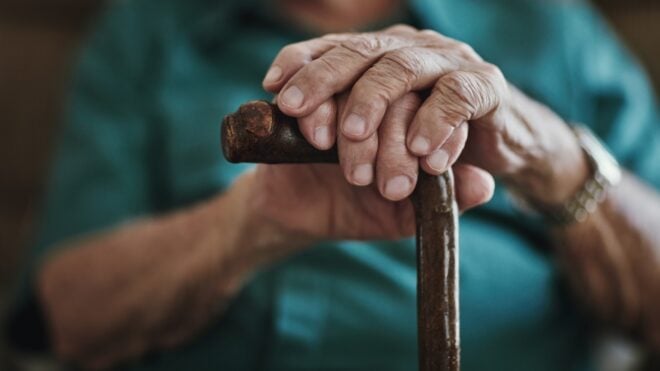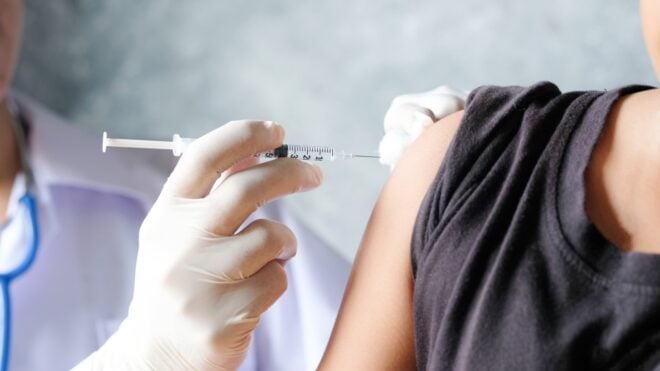As parents consider their options for the school year ahead, a Georgia summer camp's story is changing the way some people see heading back to in-person learning. YMCA Camp High Harbour welcomed 600 campers and staffers in late June. By mid-July, 76% of the 344 tested for COVID-19 tested positive.
The sleepaway camp followed some, but not all, guidelines set by the Centers for Disease Control and Prevention. While all staff members were required to wear masks, campers were not. In addition to not wearing masks, the campers also engaged in shouting, cheering, and loud singing, activities that have been flagged as possible means for transmission.
Prior to arriving, campers had to provide proof of a negative test result within 12 days of the start date. The average age of campers was 12 years old. There were 15 children in each cabin, across 31 cabins. Camp staff, who arrived a week before the children to prepare, had the highest infection rate. This suggests that all in attendance were at a risk that grew the longer they were there.
A Georgia summer camp that tried to forge ahead with a sleepaway model is giving us interesting insight into how COVID-19 spreads among children. The YMCA Camp High Harbour hosted nearly 600 young campers and counselors. The camp started in late June and ran for just 10 days before being forced to shut down.
The camp opened on June 17 for staffers. They spent several days preparing the grounds before the children arrived. The campers, who averaged 12 years of age, had to provide a negative COVID-19 test administered within 12 days of the start date.
The camp followed some CDC precautions, but not all of them. Staffers were required to wear masks, but campers were not. Recommendations also included keeping doors and windows opened to increase air circulation where possible, which the camp also decided against.
The first known case involved a teen camp staffer who developed chills on June 23 and tested positive the next day. Over the next three days, staffers contacted parents to come to collect campers after the exposure. They shut down for good on June 27.
A CDC report about the outbreak noted a "variety of indoor and outdoor activities, including daily vigorous singing and cheering," which is believed to have helped contribute to the transmission through the spread of droplets. Campers were also in close quarters, with 15 children in each of the 31 cabins used.
Of the 344 campers and staffers tested for COVID-19, 76% tested positive by mid-July. This amounted to about 44% of the camp's total population. The attack rate was 51% among the 6- to 10-year-olds, 44% among the 11- to 17-year-olds, and 33% among the 18- to 21-year-olds.
The CDC also believes the findings indicate that the risk increased the longer the children and staffers were in attendance. Staff members, who started earlier than campers, had the highest attack rate at 56%.
"These findings demonstrate that SARS-CoV-2 spread efficiently in a youth-centric overnight setting, resulting in high attack rates among persons in all age groups, despite efforts by camp officials to implement most recommended strategies to prevent transmission," the CDC notes.
Parents were surprised that the camp had the issue when they'd taken so many lengths to prepare. "I was surprised because they had done such a great job with precautions, with pre-screening the counselors and making sure that they were tested," one parent told Good Morning America.
"Because the camp was mostly outdoors, I didn't understand how it could've happened based on the precautions and the space."
In a statement to ABC News, the YMCA doubled down on the efforts taken. Staff also noted that parent demand to reopen was great.
"Attending Camp High Harbour is a tradition numerous generations of Y families look forward to every summer," they said.
"Many of these individuals reached out to the Y to express their desire for us to open our resident camps in an effort to create normalcy in their children's lives due to the detrimental impact of COVID-19. This weighed heavily in our decision to open, a decision in retrospect we now regret."
"Given how bad of an outbreak Georgia was experiencing, I don't think it was wise to open that camp and then they didn't do all the [precautions] around ventilation and getting kids to wear masks," Dr. Ashish Jha, director of the Harvard Global Health Institute, told GMA.
"It is a warning sign of what could happen if you don't follow the guidance."
Dr. Jha believes this is very telling in what could happen if reopening is not handled properly.
"I think we've been a little cavalier about this and have sort of assumed that kids are fine and they don't spread at all or they don't get infected very often. I think we're seeing data that suggests that may not be true," he said.
"I do think that schools can reopen but not in communities with large amounts of spread and not without really vigorous planning. I feel like too many communities are just not doing that — they're just sending kids back to school without all that extra work."




